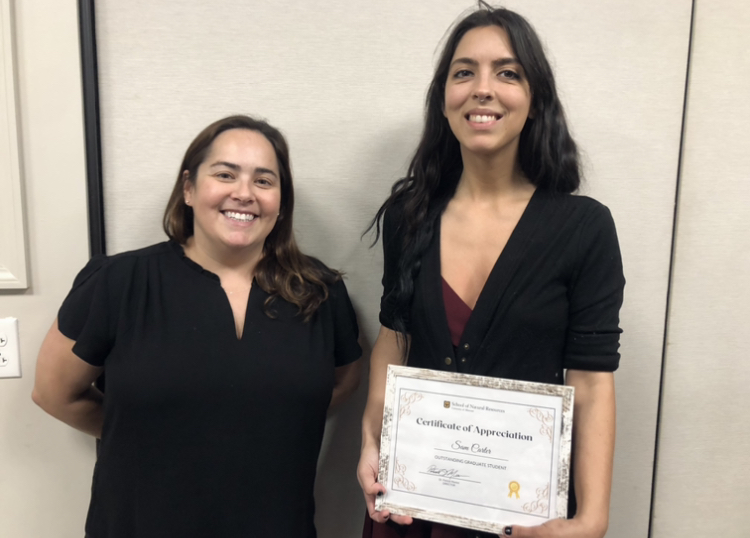
When Samantha Carter attended the Missouri Scholars Academy her senior year of high school, she had no idea how that decision would influence her life and learning years later. The academy inspired Carter to enroll at MU, and today, eight years later, she is still here, completing her Ph.D. and doing research that may have real impacts for indigenous peoples throughout the United States.
Carter’s research explores the intersections of indigenous land, natural resources and public policy.
“It’s really beneficial to start looking at what other governments are doing with indigenous settler colonization,” Carter said. “It happened in so many places, and in the United States it remains a dark, looming question of what to do with this legacy.”
With this in mind, Carter spent time researching public policy and the effects of those policies on lived experiences of indigenous people around the globe, including a trip to New Zealand to spend time with the Māori people.
While in New Zealand, where the indigenous population is 17% of the total population, in comparison to just 1% in the U.S., Carter noticed a culture shift. For example, it was not at all uncommon to encounter the Māori language.
“I think they really focus on trying to integrate Te reo, the native Māori language, into mainstream society,” Carter said. “All of their public transportation signs, like bus stop signs, are in both English and Māori. For me, coming from the United States where you would rarely see a sign like that in the Cherokee language, for example, that was just amazing.”
The use of the Cherokee language would be especially powerful for Carter because she herself has Eastern Cherokee heritage, although she was not exposed to her indigenous culture and traditions as a child. In fact, it was not until she came to Mizzou that she began to find that part of herself.
“I’ve really been able to connect to that part of my identity through academic work,” Carter said.
Carter attributes this exploration in large part to her advisor, Robin Rotman, assistant professor in the School of Natural Resources. Carter first met Rotman when taking one of her classes during her senior year of her undergraduate degree, and the interaction helped point her way to her current path.
“Robin’s been a fantastic advisor,” Carter said. “She has a wealth of experience coming from her law practice and she has worked extensively with tribes in the past.”
In January, Carter will head to Hawaii where she will work with new tribes after recently being awarded a National Science Foundation grant to cover her travel costs. While there, she will interview members of the indigenous community as well as local legal experts and other academics about stewardship of indigenous lands and resources.
Carter explained that the indigenous people of Hawaii are of particular interest to her as she looks to help shape policy about indigenous lands in the continental U.S. because of a key difference in how those lands are designated in the island state.
“There are no reservations in Hawaii,” she said. “Stewardship of lands cannot be done there without collaboration with state and other governments.”
When she returns from Hawaii and completes and defends her dissertation, she will leave the Mizzou community as she heads to Northwestern University to continue her work. There, as a post-doctoral fellow, she will help draft potential policy to protect Manoomin — a culturally significant wild rice — from the effects of climate change.